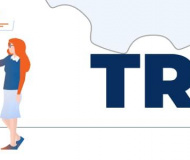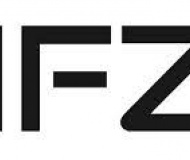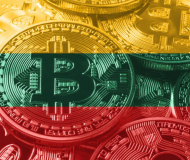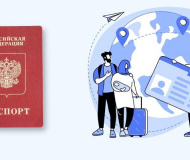Gambling in the internet: rules of the game
News:
Date added: 14.08.2015
Today, a fairly large number of gambling resources are available online: online casinos, poker rooms, lotteries, bingo, etc. And if this kind of activity is very profitable for its owner, then the controlling bodies of the countries of the world find virtual gambling a matter of troublesome management and regulation.
Considering the aspect that the gaming business is, by default, a potential threat to the interests of consumers (players), governments of many states take measures to tighten control over the operation of online casinos.
The attitude towards gambling in different world jurisdictions is absolutely diametrically opposed. In most US states, for example, gambling in the Internet is prohibited. In the EU countries, similar activities are allowed, but subject to strict state control.
Most of the problems in regulating the activities of companies offering gambling services arise when the owner registers his business abroad. In such cases, there is a need to develop clear tools to protect the rights of consumers who are citizens of a particular state. However, the principles of conduct of the country in which the company is registered may differ from the conduct of jurisdiction, whose residents are customers of gambling business.
Not only developed countries, but also world offshore companies today are developing and adopting legislation regulating the work of gambling online resources. Traditionally, the offshore heavens for gambling in the Internet are Costa Rica, Antigua and Barbuda, and since 2001 Alderney and the Isle of Man also issue gambling licenses.
At the same time, the authorities of some countries, including the United States, are taking measures to protect the rights of their citizens, who can become clients of foreign online casinos.
To register online gambling, you can contact the law firm Law&Trust International. With our help you can save not only your time, but also money.
USA
The legal experience of Americans is interesting already because it is the USA that dictates trends in the Internet. Only a few states (among them - Nevada) legally allowed the conduct of online gambling, while strictly controlling this area and receiving taxes from it. There is a range of important nuances. For example, it is forbidden to transmit information about bets or winnings through wire communication. Sanctions are expressed in fines, and in other cases - criminal liability (up to two years of imprisonment).
The law was adopted a long time ago, but despite this, on its basis, sentences on e-commerce (gambling) were made in a number of cases. The most famous was the case of Jay Cohen. Further You can learn more details about it.
In 1996, Jay Cohen, securities specialist, registered the bookmake’s office World Sports Exchange (WSE) in the island state of Antigua and Barbuda. Cohen's company hosted bets for various sports events in the United States. The activity was legal, and therefore did not cause fear to the owner. The "golden bottom" dried up a year later, when Cohen was arrested in Seattle. The prosecution held the following position: a New Yorker who stakes on an offshore server is in his state, which means that the bet is considered accepted in New York, where online gambling is prohibited. And despite the fact that many New Yorkers called Nevada their location place, Cohen received a 21-month prison sentence, followed by a rejection of the appeal.
Another example of harassment of owners of gambling Internet companies is the case of 2006 against the company BetonSports Plc. The president and several other employees of the firm were accused of violating that part of the law that prohibits the acceptance of bets using wire-line communications. In addition, BetonSports Plc was accused of non-payment of taxes to the treasury of the United States: the company received more than $3 billion in the form of bets from citizens of the country without paying a cent under the excise tax. After the arrest of the company's leaders, the company went bankrupt.
The US Congress repeatedly considered bills on the prohibition of the organization of online casinos. Nevertheless, none of them was adopted. One of the reasons could be the reluctance to go against the laws of individual states that permit gambling.
As a result, the decision was found: cash flows of gambling companies in the Internet were blocked at the federal level. Since 2006, gambling companies have been banned from accepting any financial instruments (checks, bank transfers, etc.) while conducting "illegal gambling" via the Internet. The term "illegal" implies inconsistency with state or federal law. Due to violation of the law, administrative and criminal liability may occur (up to five years of imprisonment).
Under the above-mentioned law, financial intermediaries (banks, payment systems) should identify and block prohibited transactions. After high-profile arrests, many gambling companies registered abroad denied gambling to American clients.
Experience of other countries
There are also approaches different from the US to control gambling in the Internet. For example, the UK recognizes the legality of the gambling business, requiring companies to obtain an appropriate license. Online games are called "remote" there. And as a means of communication, telephone, television, the Internet, and radio are used. Foreign gambling companies in the United Kingdom are limited in the right to advertise.
It is allowed only in cases where business is controlled by one of the countries of the European Economic Area (EU countries, Iceland, Liechtenstein, Norway). Gibraltar is also equated with the EEA countries. In addition, the "white list" can be supplemented by the decision of the Secretary of State. Today, the Isle of Man and Alderney Island correspond to the standards of Great Britain. Other foreign gambling companies do not have the right to advertise their services in the UK.
When there are difficulties with bringing to liability the owners of online casinos, they bring the players to account. For example, in Hong Kong, there is a prohibition (there are some exceptions) for accepting and making bets in the Internet. That is, the responsibility is borne not only by operators of the gambling business, but also by its participants. Since 2002, all bets that are made from Hong Kong and are taken outside of it are prohibited.
World Discussion
Obviously, approaches to gambling in the Internet vary depending on the approach of the government of each country. For example, the UK regulates only the advertising of foreign resources, while controlling its own companies.
And the US is taking active measures to prosecute the illegal attraction of its residents to gambling in the Internet. So the US influence extends beyond the territory of the states. This establishes the jurisdiction of federal courts over foreign gambling resources. The main opponents of such American approach are, for obvious reasons, jurisdictions in which the gambling business is completely legal, controlled by the state and pays taxes to the treasury.
Sometimes there are various legal disputes between the US and small states that have concluded an agreement with the WTO (World Trade Organization). The fact is that the short meaning of such agreements is just protection from various trade barriers.
An example is the dispute between the US and the island state of Antigua and Barbuda. In 2003, the authorities of a tiny state initiated a dispute resolution procedure within the WTO. The essence of the dispute was that state law prohibits the involvement of US residents in the online games that are offered from the territory of Antigua and Barbuda. And this, in turn, violates the agreement on trade in services.
To solve the problem, the WTO Arbitration Group was established. And in 2004 its decision was as follows: the ban on the supply of gambling in the US from Antigua is a violation of the provisions on access to the market. And even exceptions (as indicated in the Agreement), which provide for restrictions to protect public order and morality, are not applicable here. The USA was recognized as the violator of the Agreement.
The US response was an appeal to the WTO. The decision of the appellate body was contradictory, which allowed both parties to treat it as a victory. As a result, a number of mutual proposals followed. The need to amend US law was stated by Antigua, which should bring it into line with the Agreement. Apparently, they meant the abolition of benefits for local sweepstakes or the admission of foreign gambling companies to accept bets. In turn, the US provided additional arguments in favor of the fact that the contested measures can not be recognized as discriminatory. Due to the existing contradictions the Arbitration Group was again established in 2006.
What was the continuation of this story? The US did not show any intention to change the legislation. As a standard measure in such cases, payment of compensation or imposition of trade sanctions by the country that won the dispute in relation to the opponent state is applied.
In this case, the imposition of sanctions on the part of Antigua would clearly not entail significant changes for the United States and would not cover the losses suffered. And then Antigua put a request to the WTO to suspend the application to the US of the obligations of the island state, which are determined by the General Agreement on Trade and Services. That is, in fact, Antigua asked for permission to use American intellectual property on the principle of piracy. The US protested, estimating potential losses of $ 3.4 billion annually, and the amount in question should not exceed 500 thousand.
And again the arbitration proceedings followed. In conclusion, "legal piracy" was allowed to Antigua as a form of self-defense from the United States. But the amount of losses for the respondent country was limited to 21 million dollars a year. At the same time, in May 2007, the United States retaliated and proposed to clarify the list of services that fall under the Agreement, excluding gaming services from it. And there was a risk that in relation to the United States, the countries’ claims will be put forward, the damage of which from the aforementioned change will be much greater than for Antigua.
In principle, Australia, Canada, Costa Rica, India, Japan and Macao have claimed compensation. But in December 2007, an agreement was reached between the US and the EU, as well as Japan and Canada, according to which the claims of the countries to the United States were eliminated in exchange for their admission to other states’ markets.
Within the EU, passions for gambling are also not less. For example, there is a restriction in access for Internet operators from abroad. In some cases, even criminal prosecution is envisaged.
The main principle of the EU countries' policies regarding foreign gambling in the network is that restrictions that are designed to protect the rights of consumers are possible, but can not be contradictory and unsystematic. Discrimination of foreign service operators is also unacceptable.
The European Commission on the compliance of legislation on gambling in the Internet with EU rules is actively engaged in the elimination of trade barriers. For example, some countries have already been required to change the legislation and taxation principles in order to avoid proceedings in the European Court.
Conclusion
The gambling business and the Internet go side-by-side. Modest costs for the content of the website more than cover the income from clients’ bets, from literally every corner of the world. But it is important to remember that gambling services should correspond not only to the legislation of the country in which the gambling company is registered, but also to the requirements put forward by countries whose residents are potential clients of the websites.

















